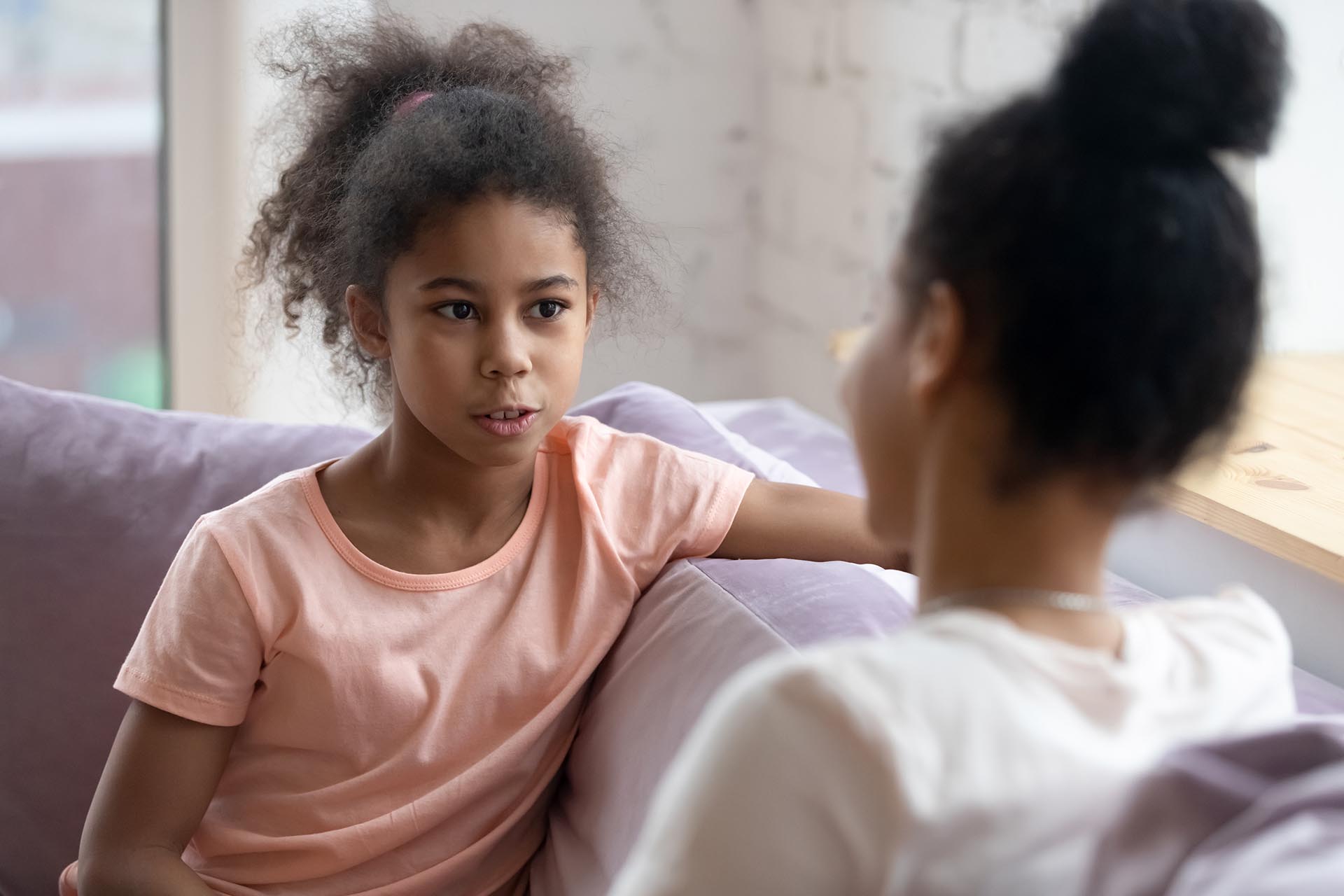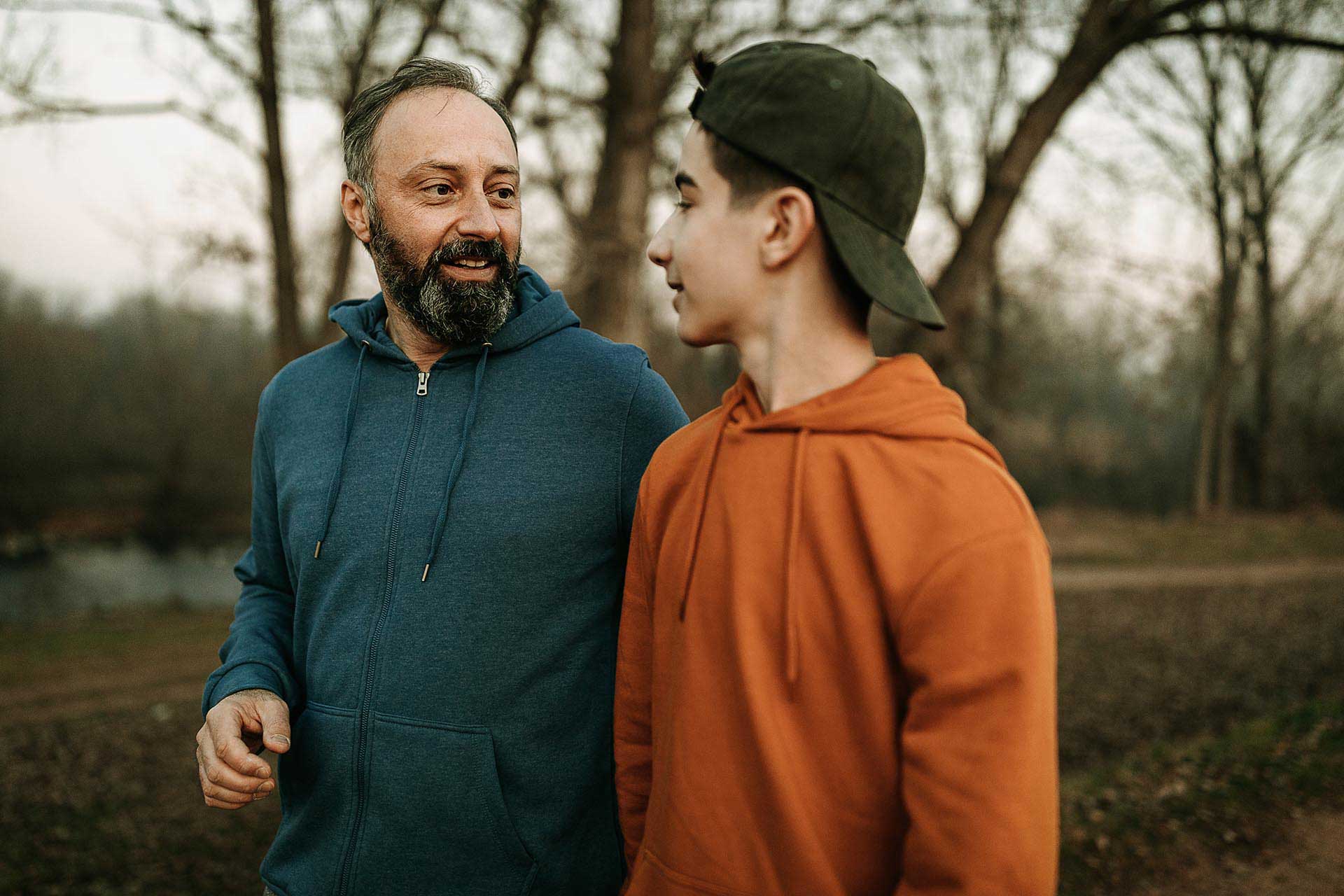'Virginity': myths your teen needs challenged
There’s a lot of pressure around ‘the first time’. And teenagers should take their first sexual experiences seriously, as there’s a lot at stake and significant risk (and potential for joy and excitement!) that come with sex. But there are also a lot of antiquated ideas that don’t help young people when navigating what can already feel like a minefield. Here are our talking points you can bring up with your teen around what myths around ‘the first time’ we believe need to be challenged and debunked.
Myth: the first time is supposed to hurt
Sex should not hurt. Whether it’s vaginal sex, anal sex or anything else, pain is a warning sign that the body isn’t comfortable, and you should stop what you’re doing, try something else, or at least take things much slower. When you’re anxious, and if you have a vagina (this applies to the anus, too), the muscles can contract to make inserting anything difficult or painful. It might be a sign that you’re not ready for this particular sexual act and/or with this person. If you’re feeling confident that you’d like to continue, then taking long, deep breaths and adding more lubrication can help relax the body and make things easier.
Myth: women should bleed after the first time
We’ve all seen the movies or read accounts of people holding up bloodied sheets to display the proof of the newlywed woman’s just-lost virginity. The blood in such cases is meant to have come from the hymen, which is a remnant tissue just inside the opening of the vagina that’s left over from the vagina’s formation during embryonic development. The idea is that when a person with a vagina has penetrative sex for the first time, the hymen breaks – creating blood. The problem is that for many people, the hymen naturally breaks before this happens. Even if the hymen does break from intercourse, the existing tissue can be so thin, small or perforated that it doesn’t bleed. In fact, the hymen isn’t rigid – it’s flexible, so sometimes it doesn’t even tear at all. Note that there isn’t any equivalent indicator or measure for a man, either.
Myth: girls should cherish and protect their ‘virginity’
No, just no. All young people should think carefully about how, when and with whom they want to engage in new sexual experiences. But ‘virginity’ isn’t something that makes a person any better (or worse) than someone else. It certainly doesn’t make them ‘pure’. Honestly, this is just an old, sexist idea, and it’s time we put it in the bin. Also, we might want to consider getting rid of the term itself. ‘Virginity’ stems from ‘virgin’, meaning a ‘sexually intact young woman’ (not a thing), and we shouldn’t ever consider having a new sexual experience as a loss. How can we lose something we never had? The term implies permanence, regret, or sadness over giving up something ‘precious’ that you can’t find or get back. It also perpetuates the idea that sex is something to be ‘taken’, not shared.
Myth: ‘losing your virginity’ means to have penis-in-vagina sex
The problem with categorising ‘sex’ only as penis-in-vagina intercourse is that it completely erases the sexual experiences of queer people. Is a woman who’s only ever slept with other women still a ‘virgin’? Is a man who’s only ever been with other men still a ‘virgin’? Once we think about the diversity of sexual experience, it seems silly to think of someone being ‘a virgin’ before vaginal sex and ‘no longer a virgin’ after (and as we mentioned above, even these terms are antiquated). Considering sex to only include penis-in-vagina intercourse also creates an idea that this is the most important and most pleasurable type of sex in heterosexual relationships, which we know people often don’t consider to be the case.
You might say, ‘Is a woman who has only slept with other women still a “virgin”? Is a man who’s only ever been with other men still a “virgin”? Even that term comes from sexist origins, so maybe we shouldn’t use it anymore? What do you think? How can we reframe our ideas around first sexual experiences?’
Myth: ‘losing your virginity’ means to have penis-in-vagina sex
The problem with categorising ‘sex’ only as penis-in-vagina intercourse is that it completely erases the sexual experiences of queer people. Is a woman who’s only ever slept with other women still a ‘virgin’? Is a man who’s only ever been with other men still a ‘virgin’? Once we think about the diversity of sexual experience, it seems silly to think of someone being ‘a virgin’ before vaginal sex and ‘no longer a virgin’ after (and as we mentioned above, even these terms are antiquated). Considering sex to only include penis-in-vagina intercourse also creates an idea that this is the most important and most pleasurable type of sex in heterosexual relationships, which we know people often don’t consider to be the case.
You might say, ‘Is a woman who has only slept with other women still a “virgin”? Is a man who’s only ever been with other men still a “virgin”? Even that term comes from sexist origins, so maybe we shouldn’t use it anymore? What do you think? How can we reframe our ideas around first sexual experiences?’
Myth: there is only one ‘first time’
This follows on from the above points. If we stop seeing ‘virginity’ as something that is ‘lost’ with vaginal sex, then what is it? The great thing is what you consider to be becoming sexually active can be whatever you want it to be – whatever it means to you. Sex advice columnist, author and queer activist Dan Savage has a nice idea that each person has a ‘deck of cards.’ One card can be your first kiss, another when someone tells you they love you, another when you see another person naked, another when you have oral sex, another vaginal sex, and so on. It’s not about loss, it’s about new experiences – but it’s also okay if you don’t have all these experiences over your lifetime. And if any of these ‘firsts’ isn’t what you want it to be, you don’t need to count it. You don’t need to count any ‘firsts’ at all.
Myth: the first time should be perfect
Obviously, any sexual experience should be with someone you trust, respect, and enjoy being around – especially the first of anything. But there can be a lot of pressure that any new sexual experiences have to happen in an exactly-just-so-according-to-plan way and with someone who is the love of your life (just like scenes in the movies). But for many people, this won’t be the case, and that’s okay. It’s good to have expectations, but you don’t need to beat yourself up if the ‘first time’ of something wasn’t everything you hoped it to be (so long as it wasn’t an awful or traumatic experience). You’ll get plenty more opportunities to try again in the future. And hopefully, you’ll have many experiences as you grow older that will be pleasurable, amazing and memorable.
Myth: the first time won’t be good
This is the other side of the coin in terms of how people often view first sexual experiences. It’s true that sex can be awkward or weird or funny or unfamiliar, and it can take time to work out what feels good – but sexual experiences shouldn’t be awful or make you feel worse after they’re done. There can also be this idea that because the first time is all but guaranteed to be disappointing, so a person should just ‘get rid of their virginity’, tick that box, and move on. This is why communication, consent, trust, respect, and caring about the other person’s pleasure are so important. If you have and expect all these key elements from another person, then a sexual experience is far more likely to be enjoyable, even the first time.
Myth: ‘losing your virginity’ changes you as a person
Some people will feel different after new sexual experiences. They might have new feelings, perceive new sensations, or have new ideas about life and themselves. But for many, they won’t feel any different from the person they were a day ago. Whether or not a person is having sex isn’t a personality trait; for many it’s not a big deal at all. And that’s okay. There’s a narrative in pop culture that you’re almost ‘born again’ after your first sexual experiences, but this places an unhealthy emphasis on the event and for most it simply won’t be true.
Myth: you should have had sex by a certain age
Teenagers can experience a lot of pressure to have sex, particularly boys and particularly penis in vagina sex. It doesn’t help that so much of pop culture (hello, American Pie) tells young people that it’s embarrassing to have not had sex by a certain age. This, in part, also stems from the idea that ‘virginity’ is a thing a woman has that she needs to protect, as the flip side is that men should try and ‘take’ it from them. But when to engage in sexual experiences (and how and who with) is a deeply personal matter. Rushing into sex too soon can be upsetting or, at worst, traumatic. It’s also completely normal to never engage in sexual experiences in your teens or even twenties. Some people, such as people on the asexuality spectrum, may never have sex in their lifetimes. There’s no ‘right’ age, it’s just when you’re ready – whether that’s in your teens, twenties, fifties, or never.
You might say, ‘What do you think when you watch movies where teenage boys are racing to have sex for the first time, just so that they can have it done by a certain age? Is this the right way to enter first sexual experiences? What about the flip side? Do you think society still has this idea that a woman needs to refrain from having sex? Do you think that’s fair?’
Further reading
- ‘The Virginity Myth: Let’s Think of Sex Like Disneyland’ via Healthline
- ‘The Hymen’s Tale: Myths and facts about the hymen’ via The Ohio State University
- ‘The Most Important Sexual Statistic’ via Psychology Today
- ‘The Savage Lovecast’ podcast (not appropriate for children, but an interesting learning tool for parents)










